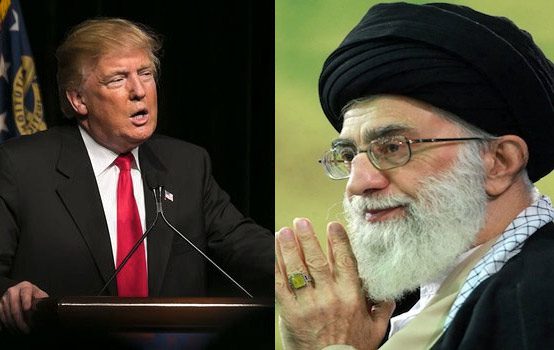The Consequences of Blowing Up the Nuclear Deal

Former Energy Secretary Ernest Moniz spells out what the nuclear deal with Iran does and what withdrawing from it would mean:
Conversely, if Trump withdraws the United States from the agreement, with Iran complying and with our allies clearly committed to its continuation, he will have compromised the most stringent nuclear verification standard ever achieved, with no credible prospect for restoring or improving it [bold mine-DL]. Such a move would hand Iran a political “wedge” dividing the international community, and undercut vital arguments for verification of any agreement reached with North Korea.
Opponents of the deal often claim to be against it because it isn’t “tough” enough, but as Moniz explains the deal contains the “most robust verification measures the world has ever known.” Withdrawing from the deal means throwing that away for no good reason. If Trump follows through on his threat to withdraw, he will confirm that his complaints about the agreement were made in bad faith. Reneging on the deal just because some of its restrictions expire after a decade or more gives the game away. It gives Iran the excuse to ignore some or all of the deal’s restrictions immediately instead of having some of them lifted in the 2020s or 2030s. We’re supposed to believe that the gradual expiration of some restrictions is so intolerable that we should throw away all of the restrictions right away. It’s a completely irrational position, and so it’s obviously just a bad excuse for killing an agreement that Iran hawks never wanted.
If Iran is supposed to ratify the Additional Protocol that it is currently implementing voluntarily. Ratification will make these verification measures permanent, and that will make ensuring that Iran abides by its NPT obligations much easier. Blowing up the deal now would give Iran an excuse to stop voluntarily complying with the Additional Protocol years before they have to ratify it. Sina Azodi suggests that this is how Iran might respond to a U.S. withdrawal:
One possible response to a US withdrawal would be for Iran to declare that it will no longer implement the Additional Protocol of the nuclear Non-Proliferation Treaty. This supplementary protocol significantly enhances the ability of the International Atomic Energy Agency (IAEA) to monitor and verify Iran’s compliance with the JCPOA.
Under the agreement, Iran is required to implement the protocol and to ratify it within eight years of the January 2016 implementation of the JCPOA. If the deal collapses, Iran will no longer feel obliged to allow the intrusive inspections required by the protocol or to ratify it. This would significantly reduce the IAEA’s ability to monitor Iran’s nuclear activities. However, this seems to be a relatively safe option for Iran, since implementation of the protocol is on a voluntary basis.
As Azodi explains, this is the least provocative response available to Iran, and it allows Iran to further divide the U.S. and our European allies, who remain committed to honoring the agreement. It’s also quite possible that Iran will follow the U.S. out of the deal to protest the resumption of U.S. sanctions. Either way, the verification measures that make the JCPOA such a strong nonproliferation agreement will be lost.
The verification measures in the deal were so stringent because of the fear that Iran wouldn’t keep its side of the bargain, but if the deal dies it won’t be because of Iranian cheating. Opponents of the deal have shown that the one truly fatal flaw of the deal was that it contained no provision to make sure that the U.S. fulfills its obligations.